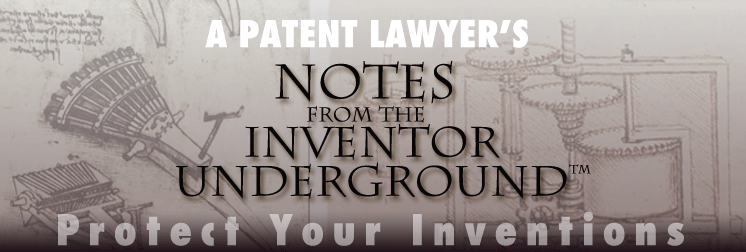Notes from the Inventor Underground

Protecting Ownership of Your Intellectual Property: The Importance of Employment Agreements
Patent and Technology trial lawyer Stan Gibson discusses the importance of employment agreements in assigning and protecting the ownership of intellectual property.
A recent decision from the Federal Circuit Court of Appeal, Stanford University v. Roche, 583 F.3d 832 (Fed. Cir. 2009), highlights the importance of employment agreements in protecting the ownership of intellectual property. This is a case that bears further watching as the United States Supreme Court is considering whether to review the case and the United States Solicitor General recently filed a brief in support of Stanford.
In Roche, the Federal Circuit faced the issue of whether the Stanford University owned certain patents or whether a third party owned the patents of a Stanford researcher who performed some of his research while visiting Roche. In ruling in favor of the third party, Roche, the Federal Circuit examined the conflicting agreements that the Stanford employee had executed–one that the inventor executed with Stanford (the "Stanford Agreement) and another that the inventor executed with a predecessor of Roche (the "Roche Agreement").
One of the central issues in the case turned on whether Stanford or Roche owned the invention created by the inventor who was visiting Roche while serving as a researcher at Stanford. The Stanford Agreement contained the language "agree to assign" while the Roche Agreement used the language of "agree to assign and do hereby assign." The Federal Circuit construed the language in the Stanford Agreement as a mere promise to assign in the future, which required Stanford to obtain a subsequent assignment by the inventor, which was not done. In contrast, the Federal Circuit found in favor of Roche because the Roche Agreement language included an immediate assignment ("do hereby assign") of the future rights with no further action being necessary.
Obviously, the difference in the language is only the matter of a few words, but in this case–as in many others–the ownership turned on the use of just a few words. The lesson from this case is that companies should review their employment agreements carefully and make sure they are adequately protected and that the assignments of inventions, designs and creations, as well as other intellectual property, contain appropriate language, including the words "do hereby assign."
Otherwise, it may turn out that someone else owns what you thought was your intellectual property.
To view a representative list of Stan’s patent and technology cases, click here.
 Los Angeles Real Estate Litigation Lawyer Jeffer Mangels Butler & Mitchell LLP Home
Los Angeles Real Estate Litigation Lawyer Jeffer Mangels Butler & Mitchell LLP Home





